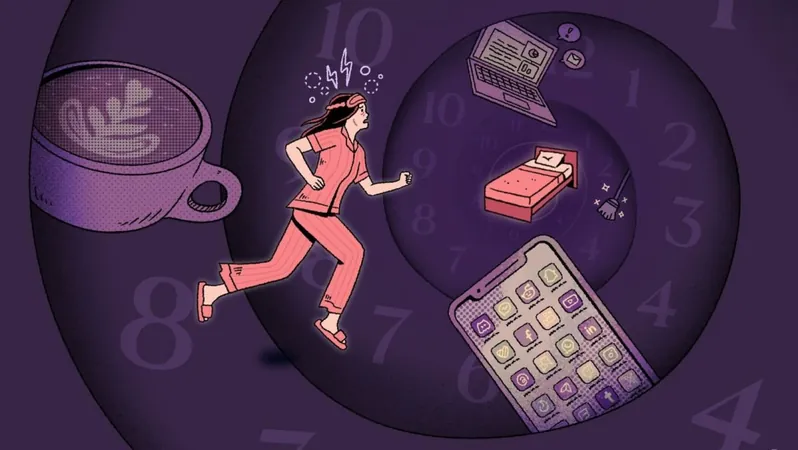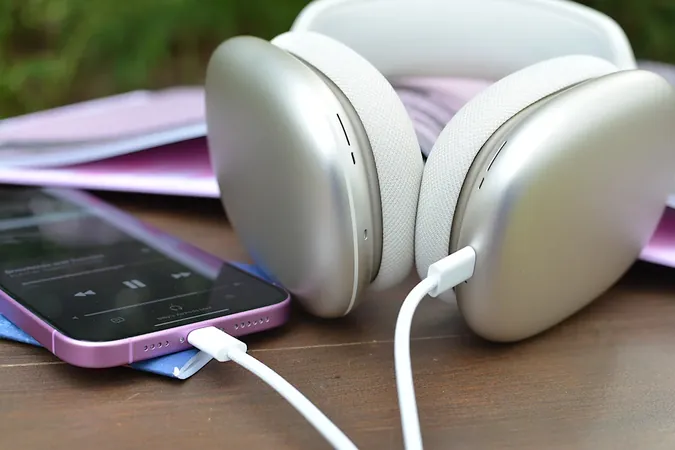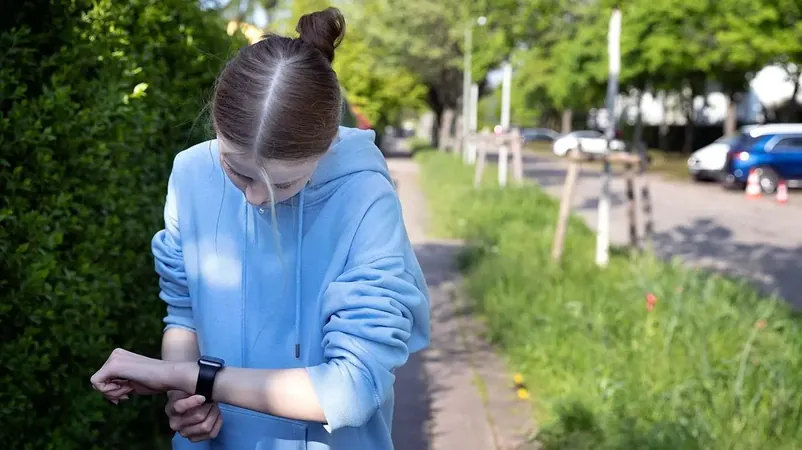
The Sleep Crisis in Singapore: Why Are So Many Residents Losing Sleep?
2025-01-17
Author: Mei
In the bustling city-state of Singapore, the pursuit of success and a fast-paced lifestyle is taking a toll on sleep. Take estate planner Shirlyn Tan, for example. Like countless other working parents, she manages only about six hours of sleep on a good night. After juggling her responsibilities at work, she dedicates time to her 17-month-old son, often getting him to bed by 10 p.m. Unfortunately, her own bedtime doesn't come until well past 11 p.m., and the cycle begins anew at 6:30 a.m.
This scenario is not unique. Ms. Tan's experiences reflect the sleep struggles faced by many Singaporeans, a crisis that has resulted in some surveys labeling the nation one of the most sleep-deprived in the world. The National Sleep Foundation recommends adults should aim for seven to nine hours of sleep each night, yet many, like account manager Samantha Lim, report averaging only five to seven hours—leaving them feeling chronically exhausted.
Asst. Professor June Lo from the Centre for Sleep and Cognition at the National University of Singapore indicates that Singaporeans sleep an average of just 6.5 hours nightly during weekdays. Surveys indicate that over half of Singaporeans regularly get less than the recommended sleep, often prioritizing work and social activities over adequate rest. The temptations of social media, especially doomscrolling late into the night, and the pressures of a demanding work culture further exacerbate the issue.
The repercussions of chronic sleep deprivation go beyond fatigue. Experts have linked inadequate sleep to a range of health issues including anxiety, depression, and various chronic illnesses, creating a vicious cycle that diminishes productivity. A study by Rand Corporation highlighted that sleep deprivation could cost economies up to 3% of their GDP. In Singapore, the yearly economic impact of sleep-related mental health issues could reach nearly US$12 billion—about 2.9% of its GDP.
Historically, the glorification of hustle culture has ingrained the idea that sacrificing sleep equates to dedication, with notable figures touting their ability to function on minimal rest. This perception, while slowly shifting, continues to linger in a society that measures productivity by hours logged rather than the quality of work produced.
Interestingly, there are signs of change. Some residents recognize the importance of restorative sleep and adopt healthier habits. For instance, Divika Jethmal, a marketing head, drastically improved her sleep by eliminating social media, allowing her to enjoy the benefits of a full night's rest almost every night.
Sleep is essential—not just for individual health but for the collective wellbeing of Singapore's future. As the conversation around work-life balance evolves, prioritizing sleep may just be the key to a more productive and healthier society. The question remains: will Singaporeans take action and cultivate a better culture around sleep, or will they continue to wear their sleep deprivation as a badge of honor?




 Brasil (PT)
Brasil (PT)
 Canada (EN)
Canada (EN)
 Chile (ES)
Chile (ES)
 Česko (CS)
Česko (CS)
 대한민국 (KO)
대한민국 (KO)
 España (ES)
España (ES)
 France (FR)
France (FR)
 Hong Kong (EN)
Hong Kong (EN)
 Italia (IT)
Italia (IT)
 日本 (JA)
日本 (JA)
 Magyarország (HU)
Magyarország (HU)
 Norge (NO)
Norge (NO)
 Polska (PL)
Polska (PL)
 Schweiz (DE)
Schweiz (DE)
 Singapore (EN)
Singapore (EN)
 Sverige (SV)
Sverige (SV)
 Suomi (FI)
Suomi (FI)
 Türkiye (TR)
Türkiye (TR)
 الإمارات العربية المتحدة (AR)
الإمارات العربية المتحدة (AR)